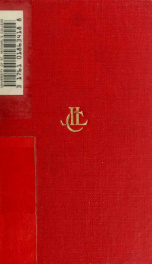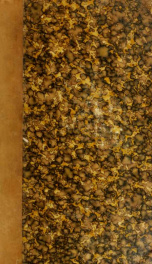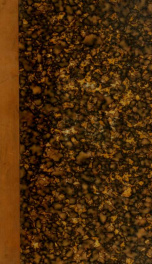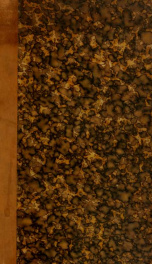martial

Marcus Valerius Martialis (known in English as Martial) (March 1, between 38 and 41 AD - between 102 and 104 AD), was a Latin poet from Hispania (the Iberian Peninsula) best known for his twelve books of Epigrams, published in Rome between AD 86 and 103, during the reigns of the emperors Domitian, Nerva and Trajan. In these short, witty poems he cheerfully satirises city life and the scandalous activities of his acquaintances, and romanticises his provincial upbringing. He wrote a total of 1,561, of which 1,235 are in elegiac couplets. He is considered[by whom?] the creator of the modern epigram. Knowledge of his origins and early life are derived almost entirely from his works, which can be more or less dated according to the well-known events to which they refer. In Book X of his Epigrams, composed between 95 and 98, he mentions celebrating his fifty-seventh birthday; hence he was born on March 1 (x. 24) 38, 39, 40 or 41 AD, under Caligula or Claudius. His place of birth was Augusta Bilbilis (now Calatayud) in Hispania Tarraconensis. His parents, Fronto and Flaccilla, appear to have died in his youth. His name seems to imply that he was born a Roman citizen, but he speaks of himself as "sprung from the Celts and Iberians, and a countryman of the Tagus;" and, in contrasting his own masculine appearance with that of an effeminate Greek, he draws particular attention to "his stiff Hispanian hair" (x. 65, 7). His home was evidently one of rude comfort and plenty, sufficiently in the country to afford him the amusements of hunting and fishing, which he often recalls with keen pleasure, and sufficiently near the town to afford him the companionship of many comrades, the few survivors of whom he looks forward to meeting again after his thirty-four years' absence (x. 104). The memories of this old home, and of other spots, the rough names and local associations which he delights to introduce into his verse, attest to the simple pleasures of his early life and were among the influences which kept his spirit alive in the stultifying routines of upper-crust social life in Rome. He was educated in Hispania, a country which in the 1st century produced several notable Latin writers, including Seneca the Elder and Seneca the Younger, Lucan and Quintilian, and Martial's contemporaries Licinianus of Bilbilis, Decianus of Emerita and Canius of Gades. Martial professes to be of the school of Catullus, Pedo, and Marsus, and he admits his inferiority only to the first. The epigram bears to this day the form impressed upon it by his unrivalled skill. The success of his countrymen may have been what motivated Martial to move to Rome once he had completed his education. This move occurred in AD 64, in which Seneca the Younger and Lucan may have served as his first patrons. We do not know much of the details of his life for the first twenty years or so after he came to Rome. He published some juvenile poems of which he thought very little in his later years, and he laughs at a foolish bookseller who would not allow them to die a natural death (I. 113). Martial had neither youthful passion nor youthful enthusiasm to precociously make him a poet. His faculty ripened with experience and with the knowledge of that social life which was both his theme and his inspiration; many of his best epigrams are among those written in his last years. From many answers which he makes to the remonstrances of friends—among others to those of Quintilian—it may be inferred that he was urged to practice at the bar, but that he preferred his own lazy Bohemian kind of life. He made many influential friends and patrons and secured the favor of both Titus and Domitian. From them he obtained various privileges, among others the semestris tribunatus, which conferred on him equestrian rank. Martial failed, however, in his application to Domitian for more substantial advantages, although he commemorates the glory of having been invited to dinner by him, and also the fact that he procured the privilege of citizenship for many persons on whose behalf he appealed to him. The earliest of his extant works, known as Liber spectaculorum, was first published at the opening of the Colosseum in the reign of Titus. It relates to the theatrical performances given by him, but the book as it now stands was presented to the world in or about the first year of Domitian, i.e. about the year 81. The favour of the emperor procured him the countenance of some of the worst creatures at the imperial court—among them of the notorious Crispinus, and probably of Paris, the supposed author of Juvenal's exile, for whose monument Martial afterwards wrote a eulogistic epitaph. The two books, numbered by editors xiii. and xiv., and known by the names of Xenia and Apophoreta—inscriptions in two lines each for presents,—were published at the Saturnalia of 84. In 86 he gave to the world the first two of the twelve books on which his reputation rests. From that time till his return to Hispania in 98 he published a volume almost every year. The first nine books and the first edition of Book X. appeared in the reign of Domitian; Book XI. appeared at the end of 96, shortly after the accession of Nerva. A revised edition of book X., that which we now possess, appeared in 98, about the time of Trajan's entrance into Rome. The last book was written after three years' absence in Hispania, shortly before his death, which happened about the year 102 or 103. These twelve books bring Martial's ordinary mode of life between the age of forty-five and sixty very fully before us. His regular home for thirty-five years was Rome. He lived at first up three flights of stairs, and his "garret" overlooked the laurels in front of the portico of Agrippa. He had a small villa and unproductive farm near Nomentum, in the Sabine territory, to which he occasionally retired from the boors and noises of the city (ii. 38, xii. 57). In his later years he had also a small house on the Quirinal, near the temple of Quirinus. At the time when his third book was brought out he had retired for a short time to Cisalpine Gaul, in weariness, as he tells us, of his unprofitable attendance to the bigwigs of Rome. For a time he seems to have felt the charm of the new scenes which he visited, and in a later book (iv. 25) he contemplates the prospect of retiring to the neighbourhood of Aquileia and the Timavus. But the spell exercised over him by Rome and Roman society was too great; even the epigrams sent from Forum Corneli and the Aemilian Way ring much more of the Roman forum, and of the streets, baths, porticos and clubs of Rome, than of the places from which they are dated. His final departure from Rome was motivated by a weariness of the burdens imposed on him by his social position, and apparently the difficulties of meeting the ordinary expenses of living in the metropolis (x. 96); and he looks forward to a return to the scenes familiar to his youth. The well-known epigram addressed to Juvenal (xii. I 8) shows that for a time his ideal was realized; but the more trustworthy evidence of the prose epistle prefixed to Book XII. proves and that he could not live happily away from the literary and social pleasures of Rome for long. The one consolation of his exile was a lady, Marcella, of whom he writes rather as if she were his patroness—and it seems to have been a necessity of his being to have always a patron or patroness—than his wife or mistress. During his life at Rome, although he never rose to a position of real independence, and had always a hard struggle with poverty, he seems to have known everybody, especially every one of any eminence at the bar or in literature. In addition to Lucan and Quintilian, he numbered among his friends or more intimate acquaintances Silius Italicus, Juvenal, the younger Pliny; and there were many others of high position whose society and patronage he enjoyed. The silence which he and Statius, although authors writing at the same time, having common friends and treating often of the same subjects, maintain in regard to one another may be explained by mutual dislike or want of sympathy. Martial in many places shows an undisguised contempt for the artificial kind of epic on which Statius's reputation chiefly rests; and it seems quite natural that the respectable author of the Thebaid and the Silvae should feel little admiration for either the life or the works of the bohemian epigrammatist. Martial was dependent on his wealthy friends and patrons for gifts of money, for his dinner, and even for his dress, but the relation of client to patron had been recognized as an honourable one by the best Roman traditions. No blame had attached to Virgil or Horace on account of the favours which they received from Augustus and Maecenas, or of the return which they made for these favours in their verse. That old honourable relationship, however, greatly changed between Augustus and Domitian. Men of good birth and education, and sometimes even of high official position (Juv. i. 117), accepted the dole (sportula). Martial was merely following a general fashion in paying his court to "a lord," and he made the best of the custom. In his earlier career he used to accompany his patrons to their villas at Baiae or Tibur, and to attend their morning levees. Later on, he went to his own small country house, near Nomentum, and sent a poem, or a small volume of his poems, as his representative at the early visit. Pliny the Younger, in the short tribute which he pays to him on hearing of his death, wrote, "He had as much good-nature as wit and pungency in his writings" (Ep. iii. 21). Martial professes to avoid personalities in his satire, and honour and sincerity (fides and simplicitas) seem to have been the qualities which he most admires in his friends. Some have found distasteful his apparent servile flattery to the worst of the many bad emperors of Rome in the 1st century. These were emperors Martial would later censure immediately after their death (xii. 6). However, he seems to have disliked hypocrisy in its many forms, and seems to be free from cant, pedantry, or affectation of any kind. Though many of his epigrams indicate a cynical disbelief in the character of women, yet others prove that he could respect and almost revere a refined and courteous lady. His own life in Rome afforded him no experience of domestic virtue; but his epigrams show that, even in the age which is known to modern readers chiefly from the Satires of Juvenal, virtue was recognized as the purest source of happiness. The tenderest element in Martial's nature seems, however, to have been his affection for children and for his dependents.
do you like this author?
What readers are saying
What do you think? Write your own comment on this book!
write a commentWhat readers are saying
What do you think? Write your own comment on this author!
write a commentBook list

Selected epigrams. Edited with introd., notes, and appendices by H.M. Stephenson
Series:
Unknown
Year:
Unknown
Raiting:
3/5
26 52
Show more
add to favoritesadd In favorites
Book list

Selected epigrams. Edited with introd., notes, and appendices by H.M. Stephenson
Series:
Unknown
Year:
Unknown
Raiting:
3/5
26 52
Show more
add to favoritesadd In favorites
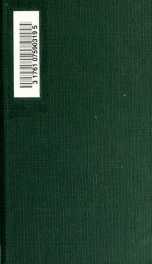
Epigrammata selecta; select epigrams. With English notes by F.A. Paley and W.H. Stone
Series:
Unknown
Year:
Unknown
Raiting:
4/5
26
Show more
add to favoritesadd In favorites

Epigrammaton libri. Mit erklärenden Anmerkungen von Ludwig Friedlaender 01
Series:
Unknown
Year:
Unknown
Raiting:
4.5/5
26
Show more
add to favoritesadd In favorites

Epigrammaton libri. Mit erklärenden Anmerkungen von Ludwig Friedlaender 02
Series:
Unknown
Year:
Unknown
Raiting:
4/5
26
Show more
add to favoritesadd In favorites

Selected epigrams. Edited with introd., notes, and appendices by H.M. Stephenson
Series:
Unknown
Year:
Unknown
Raiting:
4.5/5
26
Show more
add to favoritesadd In favorites

Selected epigrams. Edited with introd., notes, and appendices by H.M. Stephenson
Series:
Unknown
Year:
Unknown
Raiting:
3/5
26 45 52
Show more
add to favoritesadd In favorites
![Stace, Martial, Manilius, Lucilius Junior, Rutilius, Gratius Faliscus, Némésianus et Calpurnius : oeuvres complètes ; avec la traduction en français [et] publiées sous la direction de M. Nisard_cover](/img/standard/standard_book.png)
Stace, Martial, Manilius, Lucilius Junior, Rutilius, Gratius Faliscus, Némésianus et Calpurnius : oeuvres complètes ; avec la traduction en français [et] publiées sous la direction de M. Nisard
Series:
Unknown
Year:
Unknown
Raiting:
4.5/5
26
Show more
add to favoritesadd In favorites
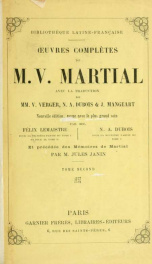
OEuvres complètes de M.V. Martial, avec la traduction de mm. V. Verger, N.A. Dubois et J. Mangeart. Nouv. éd., rev. avec le plus grand soin par mm. Félix Lemaistre, pour la première partie du tome 1 et pour le tome 2; N.A. Dubois pour la deuxième partie d
Series:
Unknown
Year:
Unknown
Raiting:
2.5/5
26
Show more
add to favoritesadd In favorites

Marci Valerii Martialis Epigrammata: ex editione Bipontina : cum notis et ... 3
Series:
Unknown
Year:
Unknown
Raiting:
2.5/5
Book digitized by Google from the library of Harvard University and uploaded to the Internet Archive by user tpb.
Show more
add to favoritesadd In favorites

Marci Valerii Martialis Epigrammata: ex editione Bipontina : cum notis et interpretatione in ... 3
Series:
Unknown
Year:
Unknown
Raiting:
2.5/5
Book digitized by Google from the library of Harvard University and uploaded to the Internet Archive by user tpb.
Show more
add to favoritesadd In favorites

Marci Valerii Martialis Epigrammata: ex editione Bipontina : cum notis et interpretatione in ... 2
Series:
Unknown
Year:
Unknown
Raiting:
3.5/5
Book digitized by Google from the library of Harvard University and uploaded to the Internet Archive by user tpb.
Show more
add to favoritesadd In favorites
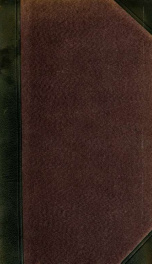
Epigrammata, ex editione Bipontina cum notis et interpretatione in usum Delphini, variis lectionibus, notis variorum, recensu editionum et codicum et indice locupletissimo accurate recensita 2
Series:
Unknown
Year:
Unknown
Raiting:
3.5/5
26
Show more
add to favoritesadd In favorites
What readers are saying
What do you think? Write your own comment on this author!
write a commentif you like martial try:
readers also enjoyed
What readers are saying
What do you think? Write your own comment on this author!
write a commentGenre
if you like martial try:
readers also enjoyed
Do you want to exchange books? It’s EASY!
Get registered and find other users who want to give their favourite books to good hands!
